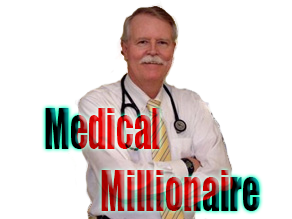 A recent study about doctors was published and made a big splash in the medical field and later the general media. This study, from the Mayo Clinic Department of Internal Medicine, was published in the December 2015 issue of Mayo Clinic Proceedings. A national survey was performed 2014 across multiple specialties and practice settings and was then compared to a similar survey in 2011.
A recent study about doctors was published and made a big splash in the medical field and later the general media. This study, from the Mayo Clinic Department of Internal Medicine, was published in the December 2015 issue of Mayo Clinic Proceedings. A national survey was performed 2014 across multiple specialties and practice settings and was then compared to a similar survey in 2011.
To summarize, professional burnout among American physicians had increased 10% over the 3 years of the study, reaching 55% levels. Even though the number of hours worked by US doctors had not increased over that period, burnout and dissatisfaction with their work-life balance had increased significantly.
Compare these findings to the general population. Working adults in all other career fields besides medicine showed only minimal changes in burnout symptoms and work-life dissatisfaction over that 3-year period, holding steady at about 28%.
Specifically, from questions within the survey, doctors showed high scores for emotional exhaustion and depersonalization. Personal accomplishment alone, on the other hand, earned low scores.
 60% of doctors felt that they did not have sufficient time for personal and family life. There was no change in the rates of suicidal ideation, but the number still stood at a relatively alarming 6.4%.
60% of doctors felt that they did not have sufficient time for personal and family life. There was no change in the rates of suicidal ideation, but the number still stood at a relatively alarming 6.4%.
Not surprising, burnout rates in primary care and family medicine were among the highest of all specialties at 63%. When asked about the causes of their burnout, doctors cited practice inefficiencies, amount of administrative burden, and bureaucratic inflexibility. Unfortunately, most health care organizations from the smallest group to the largest hospital systems depend on physician resilience alone to cope with burnout.
None of these study results are at all surprising to me. I have experienced many of them myself off and on over the years.
 The real question is: How did I handle it? Before I answer that, I want to put forward the observation that people who do not have control over their environment and feel helpless to control their life are more likely to be depressed, anxious and burned-out.
The real question is: How did I handle it? Before I answer that, I want to put forward the observation that people who do not have control over their environment and feel helpless to control their life are more likely to be depressed, anxious and burned-out.
Personally, I feel that the ability to control your practice setting and your finances gives you, as a physician, the emotional power to handle the rigors of medical practice. Being a doctor has always been a high stress job and not for the faint of heart.
Why are doctors feeling more burnout now? My answer is that they have less control. Also, despite the fact that doctors certainly make more money in yearly income on average than the general population, they feel that they need to stay on the treadmill of practice to pay the higher bills of their lifestyle.
 When I was able to control my income through the practices I developed, a degree of personal and professional freedom pervaded my life. As one of my old medical mentors counseled me, I managed my professional life such that “they” needed me more than I needed them.
When I was able to control my income through the practices I developed, a degree of personal and professional freedom pervaded my life. As one of my old medical mentors counseled me, I managed my professional life such that “they” needed me more than I needed them.
I knew that I could survive on my own if I had to. I knew that I could pick up and leave my group, my hospital or even my geographic area if I wanted to and still do fine professionally and financially. That mindset and approach to practice continues to drive me forward.
I think that we as professionals cannot wait for larger health care organizations to make our lives easier or less emotionally exhausting. That is not their priority.
You need to be the priority for you and your family. You need to grab the reins. If you can’t do it in terms of your practice setting, do it in terms of your personal finances and their management.
